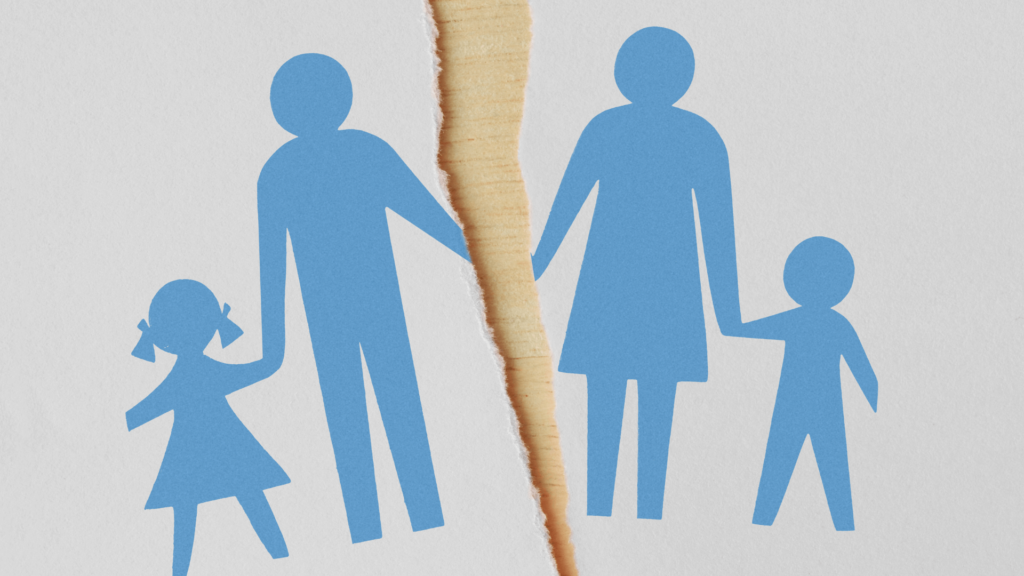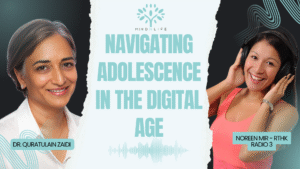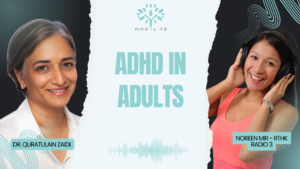Neurodiverse children commonly face challenges with emotional regulation, executive functioning, self-esteem and belonging – all of which can be further impacted by divorce, affecting their sense of connection and belonging, according to DR QURATULAIN ZAIDI of MindNLife. Here she discusses how to navigate the effects of divorce on a family and more specifically parenting a neurodivergent child through a separation.
What is neurodiversity in children? Give us some examples of the developmental differences that it can lead to.
From my perspective, how I understand and explain neurodiversity is about recognising that each of us has our own unique way of processing the world, and that’s perfectly fine. We know that no two brains are identical – and this has been my experience in my practice. Neurodiversity emphasises that each human being is unique; it focuses on the differences in how our brains function. It’s about the idea that, “Primarily I am different, not less.
There is a spectrum of related neurological differences; instead of viewing neurodiversity as a range of deficits, it’s more accurate to see it as a spectrum of differences, encompassing various challenges related to emotional regulation, executive functioning, self-esteem, and a sense of connection and belonging.
With this in mind, it’s essential not to pigeonhole children based on textbook definitions but to understand their individuality. When discussing autism, for example, I prefer to use the alternative term “Autism Spectrum Condition” (ASC); this moves away from the notion of a “disorder” and the tendency to highlight areas of difficulty, and instead focuses on individual differences and what makes each person unique.
What specific considerations should parents keep in mind when navigating divorce with a neurodivergent child during a relationship breakdown and potential separation?
Divorce can be a particularly challenging experience, especially for those who are neurodiverse. Common symptoms include anxiety, control issues, trauma responses, and social and academic difficulties, leading to low self-esteem and a hyper vigilant state.
Parents need to be aware of these challenges and understand that the way they manage their conflict in a divorce can exacerbate them, threatening a child’s sense of wellbeing, happiness and autonomy. Suddenly, the sense of security and control that children have feels threatened, leading to heightened emotions and changes in behaviour.
Catastrophising is a common response to divorce, with children often fearing that the situation will be horrendous. Research indicates that divorce itself doesn’t necessarily impact children’s happiness, but children may perceive it differently, leading to emotional distress. For instance, magical thinking may lead them to believe that their behaviour could influence their parents getting back together.
It’s also very important to highlight that neurodiverse individuals are more prone to rejection sensitivity dysphoria (RSD); because of this, divorce can exacerbate challenges to emotional regulation and a sense of belonging. As a result, children may struggle to differentiate between minor problems and significant threats, leading to defiance and anger. Emotional intensity tends to be amplified in a neurodivergent child, too; boys may exhibit explosive anger, for example, while girls may internalise their emotions to a point that it leads to eating disorders or self-harming.
What are some strategies for navigating divorce with a neurodivergent child and supporting them through the effects of family separation?
Maintaining familiar routines and providing massive reassurance of unconditional love are crucial post divorce, especially for a neurodivergent child who thrives on predictability. Ideally, there should be an agreed consistent parenting approach, focusing on shared values and limit setting rather than identical rules in each household. However, if consistency isn’t possible, explaining the reasoning behind limit setting and seeking collaborative solutions is essential, respecting the autonomy of neurodivergent children.
In cases of acrimonious divorces, it’s imperative not to involve children in the conflict or engage in parental alienation tactics. Careful communication is needed, considering the developmental age of the child. What’s more, preserving one’s own resilience through self-care is also paramount; if your reserves are running low, it’s hard to be present for others. So it’s important to focus on strengthening your own nervous system, which is vital for coping with the difficulties of divorce, both for yourself and for supporting the wellbeing of the children involved.
Is there specialised support available for neurodiverse children in emotionally complex situations like parents quarrelling and/or separating?
Seeking support from trained and experienced professionals and therapists specialising in emotional regulation techniques can be beneficial in navigating the challenges of divorce, especially when dealing with coercive behaviours from a former partner. Ultimately, focusing on strengthening one’s own nervous system and resilience is vital for coping with the difficulties of divorce, both for oneself and for supporting the wellbeing of the children involved.
What about for the parents – what kinds of resources are available?
Professional help is available, but I cannot emphasise enough that it’s important to choose experienced trained professionals who will not feed the adversarial process. Co-parenting courses are another route worth exploring, and there are also some very good books on the topic.
Why is the effects of divorce on a family an important topic to you?
With over a decade of working with families going through separation and divorce and having found some common topics where these families face immense challenges – and where children get most impacted – I feel it’s important to raise awareness of the impact of separation from a child-centred perspective.
More often than not, I see parents getting caught up in their own relational fight that has led to separation or divorce, and they are unable to separate that from what’s in the best interests of the child. Sometimes the adversarial law-driven process of divorce can make the fight between the parents worse – unfortunately, this is more common than seeing parents taking a collaborative child-centred approach.
Dr Zaidi is a British-registered clinical psychologist who works with individuals, couples and families, and as a mental health consultant for a number of NGOs and international corporations. Book an appointment here.







